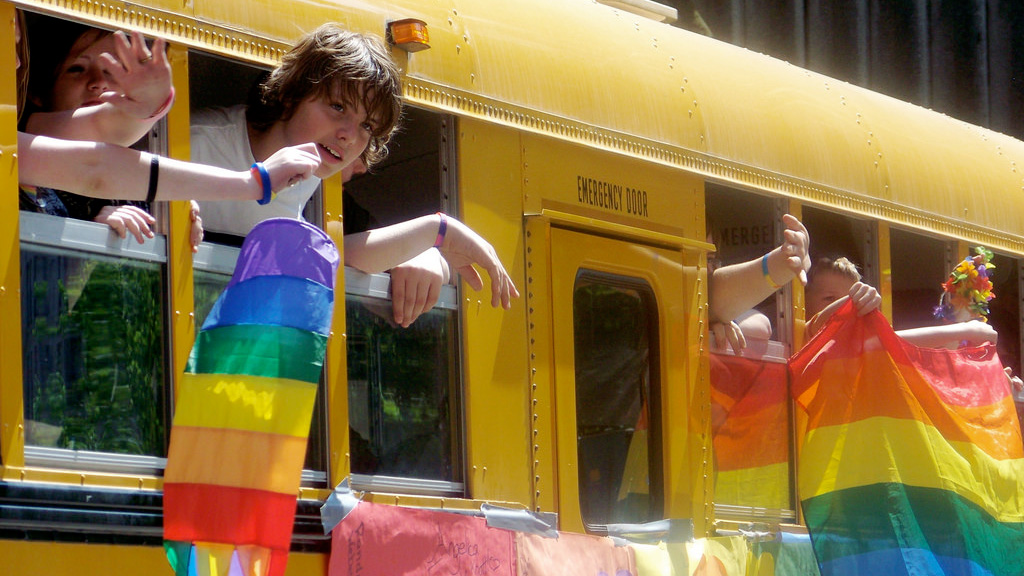 Jonas Smith
Jonas SmithEach year, The Gateway publishes an evaluation of the Students’ Union Executive and the Board of Governors representative. It’s impossible to discuss every aspect of their tenures, so these reports are largely based on the major components of the platform each executive campaigned on, and the most significant responsibilities of their respective positions.
And if you’re short for time, check out our TLDR for a bite-sized breakdown.
Levi Flaman – C+
The University of Alberta Students’ Union (SU) vice-president (operations and finance) (VPOF) is in charge of managing the $13 million UASU budget. This includes managing SU buildings and businesses such as the Students’ Union Building (SUB), Dewey’s, Room At The Top, and the Daily Grind. They also manage Dedicated Fee Units (DFU) and the Sustainability and Capital Fund (SCF).
Cleaning up SU bylaw, focusing on red-tape reduction
Students often critique the SU for its lack of transparency — both in terms of governance and budget. During his campaign, Flaman highlighted these as areas of growth he wanted to focus on, which he achieved by cleaning-up bylaw. This is no easy feat, as SU bylaws are long and complex. However, this was work started by Flaman as a SU councillor, which he then was able to dedicate more time to upon becoming VPOF.
A bylaw success that Flaman has seen is with Bylaw 6100, which outlines guidelines for student groups that collect fees from students through the SU. Known as a dedicated fee unit (DFU), this fee goes toward operating costs and providing grants.
Students get to vote on potential DFUs during general SU elections. However, student groups face a lot of red tape to get on the ballot, even before the already daunting hurdle of amassing the necessary amount of votes to pass. If a student group wants to establish a fee, it must obtain valid signatures from 15 per cent of the total SU membership. Since there are over 35,000 undergraduate students, a student group would have to collect over 5,000 signatures to pass this requirement. That is an “arduous process,” Flaman said in our interview, and I have to agree. Student groups often begin the process of establishing DFUs because they require financial support and stability to continue operations. How is it fair to ask them to collect this many signatures, when the SU election turnout barely reaches 20 per cent?
Through Bylaw Committee, Flaman worked to amend Bylaw 6100 so that Students’ Council can waive the petition process for existing DFUs and Student Representative Associations (SRA), and DFUs that have expired within three academic years. While this is an important amendment and one that will benefit student groups, I don’t know if this change will have the impact Flaman necessarily thinks it will.
During an ongoing affordability crisis, there is increased concern regarding where students’ money is going. While I agree that the petition requirement was unnecessarily restrictive, I still believe it has a place in our election preparation. All DFUs — regardless of creation or renewal — should have to fulfill the petition requirement to show that students are okay with a new potential fee. To me, it’s the percentage that’s the issue, not the requirement itself.
In Flaman’s platform, he highlights the importance of increasing financial transparency to the student body. I’m concerned that this bylaw change may impact his ability to achieve this. While his intentions are fair, the details of this bylaw amendment should’ve been communicated more clearly to avoid the perception that the SU is approving DFUs without student approval or participation.
Despite these minimal lapses, Flaman was able to achieve one very important goal — he successfully set important groundwork for his successor to continue cleaning-up red tape in bylaw. Because changing bylaw is in itself an arduous process, it’s commendable that Flaman was able to successfully streamline this process.
UASU revenue doesn’t see many changes
During our interview, Flaman told me he was most proud of the progress the SU has made in tackling affordability. While he acknowledged that this task largely fell to the other executives, he told me he made the changes he could despite the limitations he faced.
Flaman planned to take two approaches to tackle the affordability crisis — more student discount opportunities and reducing UASU reliance on student income. The amount of new discount opportunities Flaman created is unclear, but he did successfully update and consolidate many of them into one page on the UASU website. However, according to Flaman this was met with resistance from student groups like the Education Students’ Association, who felt like he was undermining their discount efforts for their own students. In our interview, he also mentioned UASU Member Mondays, a program offered on Perks that Flaman started early in the winter semester.
My main concern with these affordability efforts is how late in the term they are. In our interview, Flaman acknowledged that a big focus of his platform was on both internal and external discounts. However, despite their importance, Flaman waited a long time to get the ball rolling on these initiatives. So much so, that by the time UASU Member Mondays came into fruition, SU marketing had pivoted their focus onto the upcoming 2024 SU election. As a result, there was less awareness of this program than anticipated.
“The uptake was not as great as I would have liked,” Flaman said in our interview.
The problem with these discounts is that not only do students not know they exist, but neither do the vendors. By his own account, Flaman tried to use the UASU Member Mondays discount at SUBMart, only for the cashier to be unaware of the discount. These programs are a start to addressing the concerns Flaman had when he initially ran for VPOF, but they unfortunately came too little too late.
Similarly, while Flaman had big plans to reduce reliance on student income, the execution was weak. In his platform, he planned to explore non-student revenue opportunities, but no concrete plans have been made yet. When asked about this goal, Flaman told me they had considered opening a second Daily Grind location in University Commons when it opens. To Flaman, this would bring in more money to the SU, since University Commons is in a centralized location. However, Flaman mentioned in our interview that a primary criticism from students toward the Daily Grind is that students are paying premium prices for a product that doesn’t always live up to those expectations. To address these concerns, Flaman hoped to increase the quality of the products offered. He added that while students wouldn’t pay high prices for high-quality coffee, university employees might.
But, Flaman can’t guarantee that university employees will want to spend their money at the Daily Grind. More than that, if students don’t think there is value in a product for what it costs, the answer likely isn’t attempting to raise the quality. I think this points to a larger issue of his — biting off more than he can chew.
Awareness of students’ needs lacks student engagement
Being in-touch and engaged with the student body is a beginning requirement to understand students’ needs. Unfortunately, Flaman wasn’t heavily engaged with students during his term. This isn’t entirely on him, since VPOF is the most internal role, which Flaman acknowledged in our interview. However, many of Flaman’s goals extended past the SU’s internal processes, and involved outreach and consultation with students. But, outreach from Flaman seemed inconsistent and rare. As a result, Flaman’s lack of engagement with students became a barrier in accomplishing his platform goals.
For example, Flaman wanted to consolidate SRA’s resources, creating a more centralized system for renting lockers and providing microwaves across campus. In our interview, Flaman said that SRAs were “skeptical,” making progress difficult. However, Flaman told me that he only met with SRAs once, during a Council of Faculty Association meeting. Big sweeping changes like what Flaman was hoping to introduce take time and consultation. I don’t think the SRAs can be blamed for feeling any amount of hesitancy, since the necessary conversations could and would not happen in one meeting. His goal might have seen more success if he took the time to engage with SRAs more.
That being said, Flaman’s lack of engagement with students didn’t result in students’ needs being entirely disregarded. One of Flaman’s biggest accomplishments in his term was spearheading the Dewey’s washroom renovation.
A recurring issue on campus is the lack of gender-neutral washrooms, which students have voiced many times over the last few years. Installing gender-neutral washrooms and making Dewey’s more welcoming was a priority for the executive team this year. Flaman put in a lot of effort and provided council with multiple quotes and schematic designs, ensuring the most affordable and accessible outcome. As a result, Flaman was able to tackle a major student concern, while balancing his focuses of transparency and finances.
Plans are now in motion for phase one of the renovation process. The current washrooms will be replaced, and accessible washrooms will be added on the main floor. Flaman was cognizant of the budget and student needs throughout this process, and the final product will be of great benefit to students as a result. Flaman has shown throughout his term that he can make changes happen. If only he engaged more with students, perhaps we’d see further important changes started or implemented.
Flaman brought an important sense of optimism the VPOF role. He delivered on reducing red tape in SU processes, and addressed students’ needs with the Dewey’s bathroom renovation. However, his efforts would have benefited from more engagement with students and a bigger focus on planning. Flaman had many big ideas, but struggled to readily achieve them, resulting in a lower grade.
TLDR: Throughout his term, Flaman has still seen his share of wins, from bylaw amendments to the Dewey’s washroom renovation. Flaman would have benefitted from stronger relationships with the student body, in order to accomplish key platform points such as consolidating the management of lockers and microwaves on campus. This would have helped Flaman in his role, and also would have increased his grade.
Note: The Gateway requested to waive the petition requirements to run a DFU in the 2024 SU’s election, which was approved. The author was not involved in this process, and The Gateway’s editorial team is not involved with The Gateway’s DFU campaign. The Gateway acknowledges that this may be a perceived conflict of interest.
A-range: This person has fulfilled the promises they campaigned on and more, has created tangible change during their tenure, and has shown a commitment to improving the lives of students. Their GPA is top tier.
B-range: This person has done their job consistently well, but has not made any remarkable changes, or has fallen short on important goals they set out in their platforms. They’re doing fine, but it’s nothing to phone home about.
C-range: This person has done their job sufficiently, but has failed to make significant progress in the areas most relevant to their portfolio, or has essentially abandoned a major part of their platform. They’re still passing with a safe buffer though, and Cs get degrees!
D-range: This person has done a very lacklustre job, and has not sufficiently fulfilled their campaign promises or the responsibilities of their position.
F-range: This person has not done their job, has not represented students, and has not fulfilled their campaign promises whatsoever.




